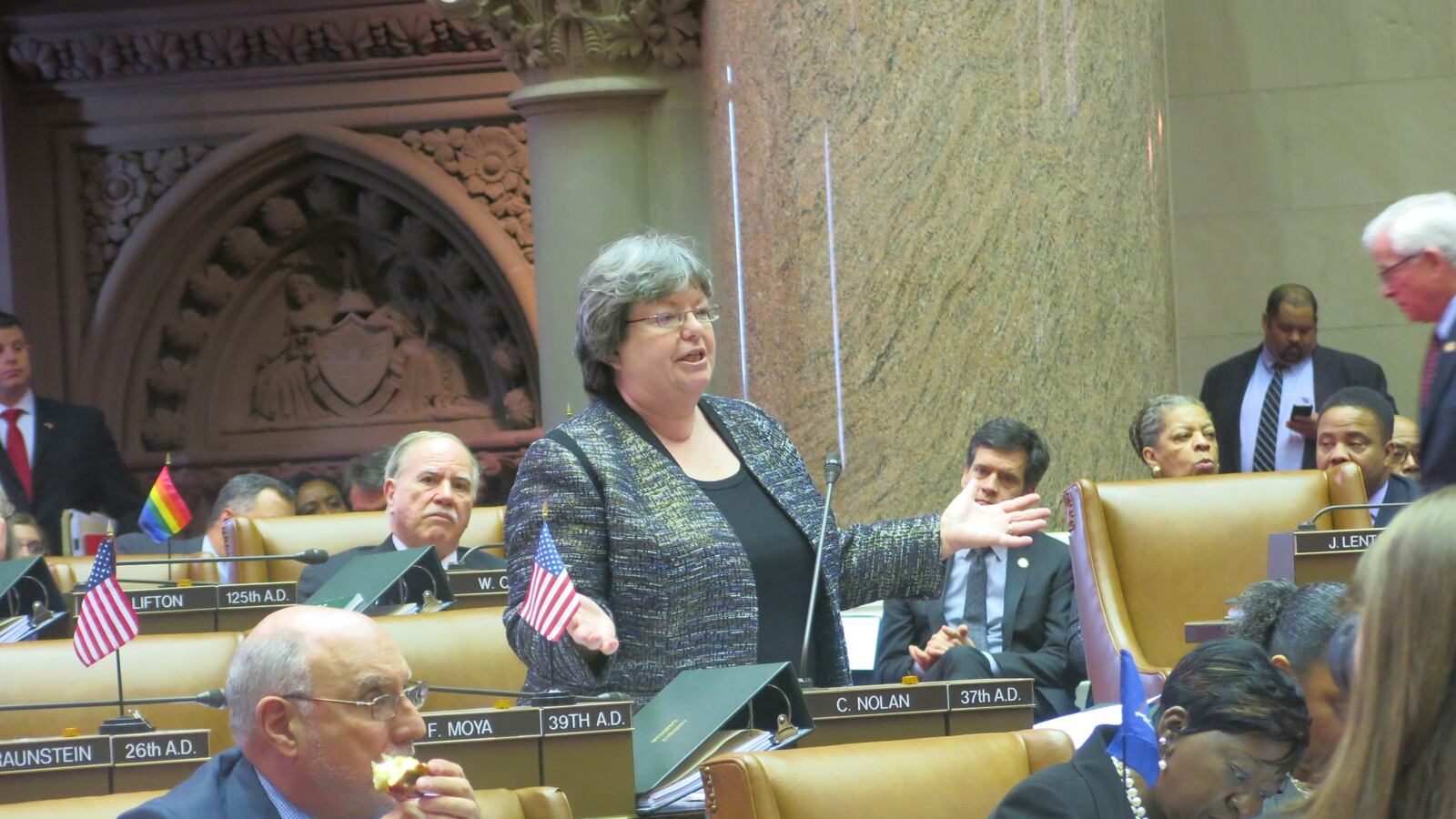Asher Mansdorf is the son of an immigrant restaurant worker, attended New York City public schools, and today serves on a Long Island school board.
But his bid to join the state’s education policymaking body could hit a road block: He’s a dentist.
Stay updated on New York City education news with our daily and weekly newsletters. Sign up here.
On Wednesday, legislators vetting candidates for the Board of Regents seat that Chancellor Merryl Tisch will vacate in March paid careful attention to whether applicants were current or former educators. During the interviews, non-teachers were asked if their occupations posed a disadvantage, and at least one former teacher was pressed to explain exactly how many years he spent in the classroom.
“Do you think not having the experience in the classroom has helped or puts you at a disadvantage?” Assemblyman Phillip Goldfeder asked Mansdorf. He repeated a version of the same question to Regent candidates throughout the day.
It’s unsurprising that legislators would ask candidates, who could soon help oversee the state’s K-12 and higher education systems, if they have classroom experience. But the special emphasis reflects legislators’ concern about the recent backlash in much of the state against state testing, teacher evaluations, and the rollout of the Common Core standards.
With the future of those standards and the state’s future teacher evaluation system now in the hands of the Regents, lawmakers appeared eager to find candidates with experience working with parents and teachers.
“It helps to have people who have been in the classroom who have that perspective,” said David Albert, spokesman for the New York State School Boards Association.
If the legislature selects another educator, it will continue a trend started last year. Three of the four new Regents chosen last spring were former district superintendents. The board, which has also drawn members from fields like medicine and business, now has six career educators among its 17 members.
Those new Regents have been part of a shift away from Race to the Top-era policies, including teacher evaluations tied to state test scores. All four of the newest Regents signed a letter last year opposing a teacher evaluation law that increased the weight given to state test scores.
Some of the educators interviewed Wednesday appeared to share that philosophy.
Carol Mikoda, a former English teacher in Windsor, New York, told legislators that state test scores should count for “zero percent” of a teacher’s evaluation until changes are made.
“I would not want to base anyone’s evaluations on a flawed instrument,” Mikoda said. Mikoda has been endorsed by New York State Allies for Public Education, the group that has encouraged the statewide movement to opt out of state tests.
After one candidate discussed how test scores could be used in teacher evaluations to indicate how educators could improve teaching certain concepts, at least one lawmakers indicated that he was looking more specifically for someone who rejected the usefulness of test scores altogether.
“Kids are more than numbers,” Assemblyman Al Graf from Long Island burst out. “Kids are more than statistics.”
The opt-out movement also came up directly Wednesday. Assemblywoman Michelle Schimel asked applicant David Bloomfield, an education professor at Brooklyn College and the CUNY Grad Center, if there was a way to bring opt-out parents back into the fold.
Bloomfield said yes, by making changes to the tests themselves.
“The opt-out parents don’t want to be opting out,” he said. “They feel driven to that.”
The legislature will select two new Regents in a joint session on March 8.
As for Mandorf, the Long Island school board member, he’s hoping that lawmakers consider more than the fact that he’s never been a teacher.
“I’m certainly not going to say it puts me at a disadvantage,” Mansdorf quipped. “I might as well as say goodbye and leave.”

